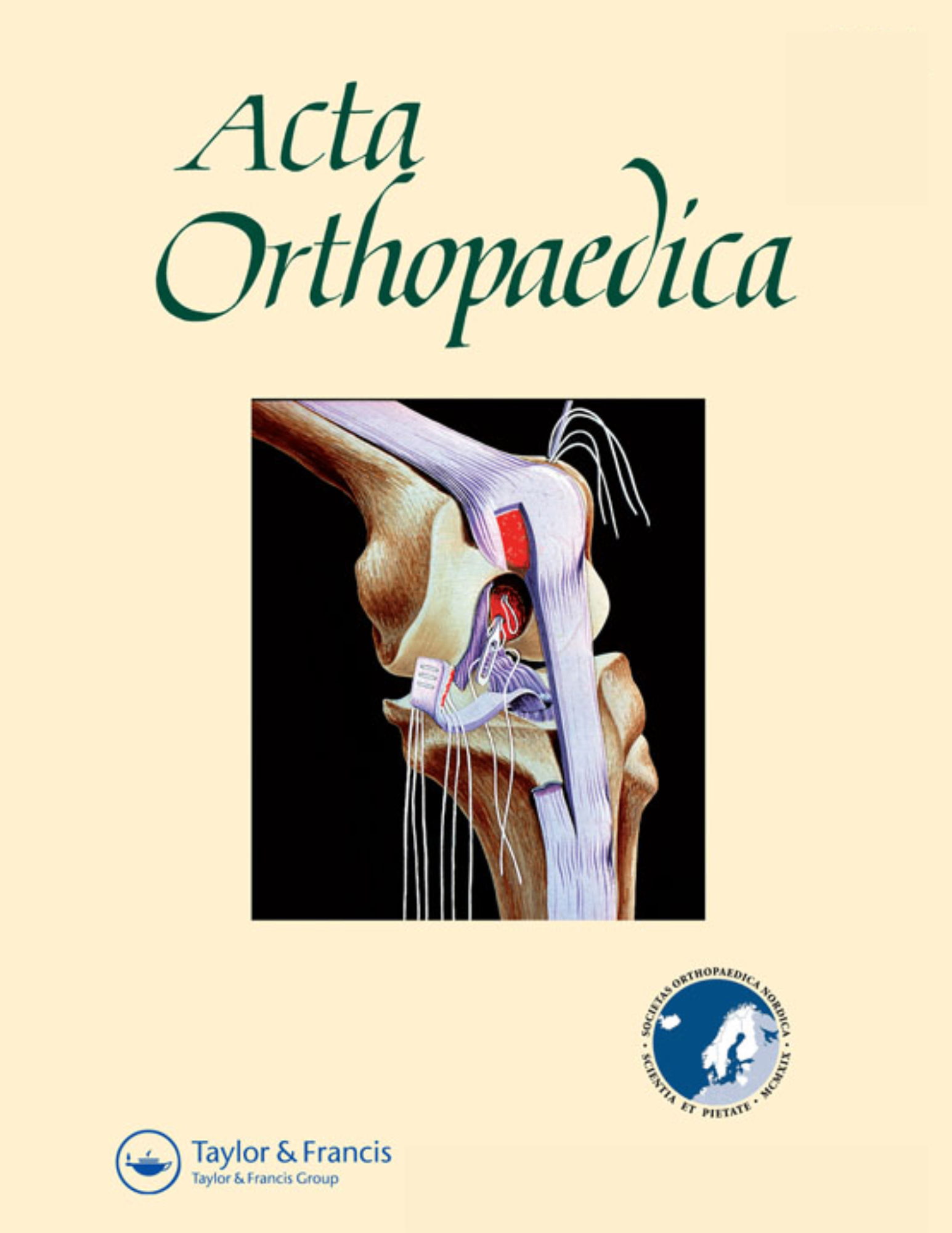
Preoperative IV methylprednisolone does not mitigate loss of flexion-extension strength after TKA

Preoperative IV methylprednisolone does not mitigate loss of flexion-extension strength after TKA
Preoperative methylprednisolone does not reduce loss of knee-extension strength after total knee arthroplasty: A randomized, double-blind, placebo-controlled trial of 61 patients
Acta Orthop. 2017 Oct;88(5):543-549Did you know you're eligible to earn 0.5 CME credits for reading this report? Click Here
Synopsis
70 patients undergoing unilateral fast-track total knee arthroplasty were included in this trial to determine if a single preoperative dose of methylprednisolone can reduce the loss of knee-extension strength at discharge. Patients were randomized to receive a preoperative injection of methylprednisolone or placebo. Outcomes included knee extension strength (Nm/kg), knee circumference, the timed up-and-go (TUG) test, knee pain, on a visual analog scale, during knee extension strength test and TUG test, and C-reactive protein levels. There were no differences between groups in the loss of knee extension strength, knee circumference, timed up-and-go tests and knee pain. C-reactive protein levels were significantly reduced in the methylprednisolone group at 24 and 48 hours.
Was the allocation sequence adequately generated?
Was allocation adequately concealed?
Blinding Treatment Providers: Was knowledge of the allocated interventions adequately prevented?
Blinding Outcome Assessors: Was knowledge of the allocated interventions adequately prevented?
Blinding Patients: Was knowledge of the allocated interventions adequately prevented?
Was loss to follow-up (missing outcome data) infrequent?
Are reports of the study free of suggestion of selective outcome reporting?
Were outcomes objective, patient-important and assessed in a manner to limit bias (ie. duplicate assessors, Independent assessors)?
Was the sample size sufficiently large to assure a balance of prognosis and sufficiently large number of outcome events?
Was investigator expertise/experience with both treatment and control techniques likely the same (ie.were criteria for surgeon participation/expertise provided)?
Yes = 1
Uncertain = 0.5
Not Relevant = 0
No = 0
The Reporting Criteria Assessment evaluates the transparency with which authors report the methodological and trial characteristics of the trial within the publication. The assessment is divided into five categories which are presented below.
4/4
Randomization
4/4
Outcome Measurements
4/4
Inclusion / Exclusion
4/4
Therapy Description
4/5
Statistics
Detsky AS, Naylor CD, O'Rourke K, McGeer AJ, L'Abbé KA. J Clin Epidemiol. 1992;45:255-65
The Fragility Index is a tool that aids in the interpretation of significant findings, providing a measure of strength for a result. The Fragility Index represents the number of consecutive events that need to be added to a dichotomous outcome to make the finding no longer significant. A small number represents a weaker finding and a large number represents a stronger finding.
Why was this study needed now?
Many patients face strength deficit in the knee following total knee arthroplasty. The inflammatory response following surgery has been theorized to be a potential major contributor to extension strength deficit. Therefore, modifying the inflammatory response with a corticosteroid, such as methylprednisolone, may help mitigate strength loss after total knee arthroplasty.
What was the principal research question?
In total knee arthroplasty, does preoperative intravenous methylprednisolone lead to a significantly smaller drop in knee extension strength when compared to placebo saline, assessed at discharge?
What were the important findings?
- Reduction in knee extension strength from baseline to discharge did not significantly differ between the methylprednisolone group (-1.04Nm/kg [range; 0.22-1.9]) and the placebo group (-1.02Nm/kg [range; 0.22-1.6]) (p=0.8).
- The increase in VAS pain from baseline to discharge, during both strength testing and TUG test did not significantly differ between the methylprednisolone group and the placebo group (p=0.7 and 0.1, respectively).
- The increase in knee circumference from baseline to discharge did not significantly differ between the methylprednisolone group (+3.6cm [range; -1.5, 6.5]) and the placebo group (+3.8cm [range; 0.8-7.2]) (p=0.7).
- C-reactive protein levels were significantly reduced at 24 and 48 hours in the methylprednisolone group compared to the placebo group (P<0.001)
- The increase in TUG test time from baseline to discharge did not significantly differ between the methylprednisolone group (+16s [range; 2.9-40]) and the placebo group (+17s [range; 0.6-53]) (p=0.8).
What should I remember most?
In total knee arthroplasty, intravenous methylprednisolone 125mg did not have a significant effect on knee extension strength mitigation when compared to intravenous placebo saline.
How will this affect the care of my patients?
The results of this study suggest that intravenous methylprednisolone in total knee arthroplasty does not have a significant benefit on early clinical parameters after surgery, including knee extension strength, knee pain, swelling, and function. Additional research should be undertaken to identify optimal strategies in recovery knee strength and function following total knee arthroplasty.
Learn about our AI Driven
High Impact Search Feature
Our AI driven High Impact metric calculates the impact an article will have by considering both the publishing journal and the content of the article itself. Built using the latest advances in natural language processing, OE High Impact predicts an article’s future number of citations better than impact factor alone.
Continue



 LOGIN
LOGIN

Join the Conversation
Please Login or Join to leave comments.